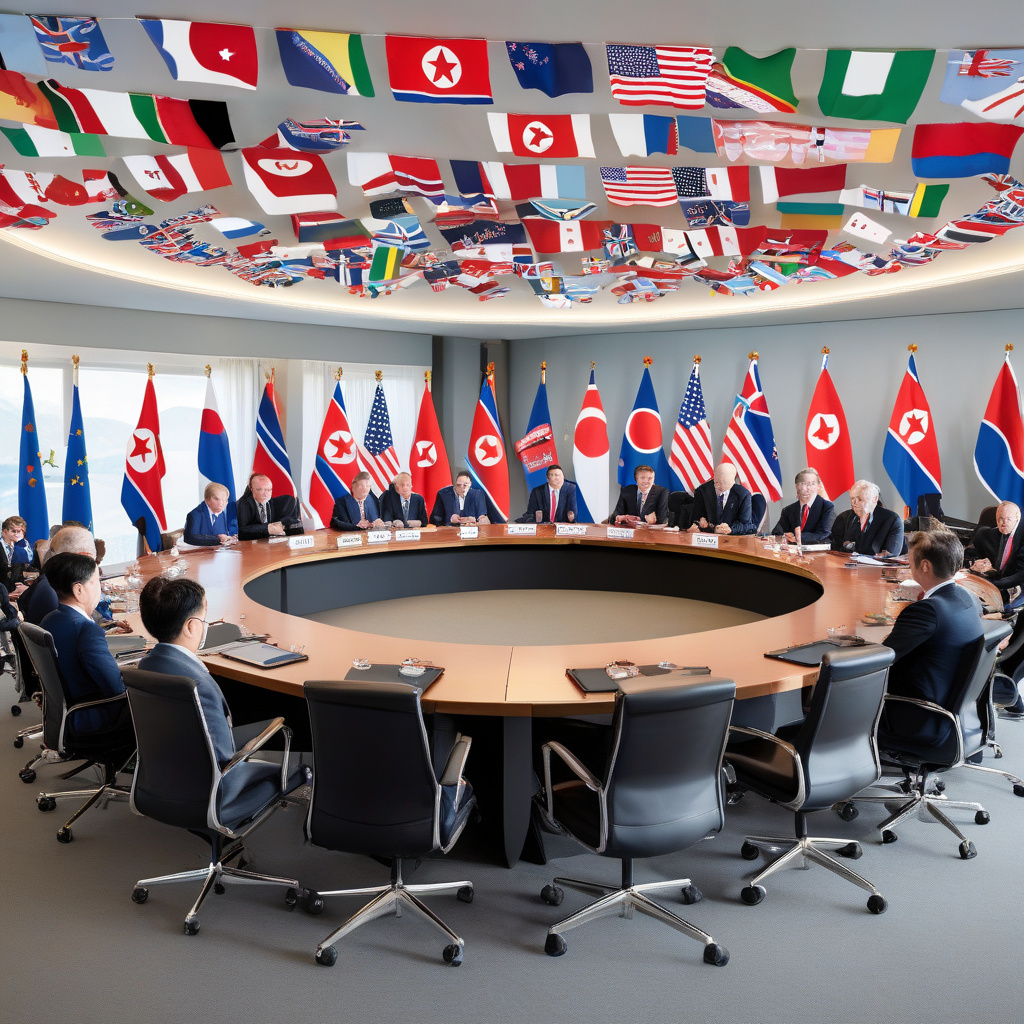G7 Summit to Tackle North Korea’s Involvement in Major Crypto Hacks
The world of cryptocurrencies has been shaken by a series of high-profile hacks in recent years, with millions of dollars being stolen by sophisticated cybercriminals. Among the groups believed to be behind these attacks is the notorious Lazarus Group, a shadowy organization with ties to North Korea. As the G7 countries prepare to meet and discuss pressing global issues, the topic of North Korea’s role in these crypto thefts is set to take center stage.
The Lazarus Group, believed to be operating under the protection of the North Korean regime, has been implicated in a number of major cyberattacks targeting cryptocurrency exchanges and financial institutions. One of their most notorious exploits was the 2018 hack of the Japanese exchange Coincheck, where they made off with over $500 million worth of digital currency. This brazen attack sent shockwaves through the cryptocurrency world, highlighting the growing threat posed by state-sponsored hackers.
But the Lazarus Group is not the only North Korean actor involved in these illicit activities. A recent report by the United Nations revealed that the regime has been using cyberattacks to fund its nuclear and ballistic missile programs, with an estimated $2 billion being stolen from financial institutions and cryptocurrency exchanges. This revelation has raised serious concerns among world leaders, prompting calls for a coordinated international response.
At the upcoming G7 Summit, leaders from the world’s most advanced economies will have the opportunity to address this pressing issue and explore potential solutions. One proposal on the table is the imposition of tougher sanctions on North Korea to deter further cyberattacks and disrupt their illicit financial activities. By targeting the regime’s revenue streams, policymakers hope to force Pyongyang to abandon its destabilizing behavior and come to the negotiating table.
However, the challenge of dealing with state-sponsored cyber threats is a complex one that requires a coordinated and multifaceted approach. In addition to sanctions, there is a growing recognition of the need to enhance cybersecurity measures and information sharing to better defend against these attacks. By bolstering defenses and cooperation among nations, the international community can build a more resilient front against malicious actors like the Lazarus Group.
Furthermore, the G7 countries must also work to raise awareness about the risks associated with cryptocurrencies and promote greater transparency within the industry. By implementing robust regulatory frameworks and compliance standards, governments can help prevent bad actors from exploiting digital assets for illicit purposes. Education and public awareness campaigns can also play a crucial role in empowering individuals to protect themselves against cyber threats and make informed decisions about their investments.
As the G7 Summit approaches, the world will be watching closely to see how leaders address the growing threat of state-sponsored cybercrime, particularly in the realm of cryptocurrencies. By coming together to confront this challenge head-on, the international community can send a clear message that such illicit activities will not be tolerated and that those responsible will be held accountable. Only through collective action and cooperation can we hope to build a more secure and resilient digital economy for the future.
crypto, hacks, G7, North Korea, cybersecurity












